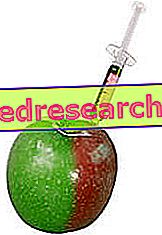
PLEASE NOTE: MEDICINAL PRODUCT IS NO LONGER AUTHORIZED
What is Agenerase?
Agenerase is a medicine containing the active substance amprenavir. It is available in cream-colored capsules (50 mg or 150 mg) and in an oral solution (15 mg / ml).
What is Agenerase used for?
Agenerase is an antiviral drug, used in combination with other antiviral medicines to treat adult patients and children over the age of four years who are infected with human immunodeficiency virus type 1 (HIV-1), a syndrome-causing virus from acquired immunodeficiency (AIDS). Agenerase should only be administered to patients already treated previously with the same type of drug as Agenerase (protease inhibitors). In adults, Agenerase capsules are usually given at a low dose of ritonavir (another antiviral medicine). Although Agenerase is available in oral solution for patients who are unable to swallow the capsules, this formulation cannot be administered concomitantly with ritonavir, since the safety of this combination has not been evaluated.
Doctors must prescribe Agenerase after carefully considering the previous antiviral drugs taken by the patient and the possibility that the virus responds to the drug.
The medicine can only be obtained with a prescription.
How is Agenerase used?
Treatment with Agenerase should be started by a doctor who has experience in the treatment of HIV infection. The recommended dose for patients over the age of 12 is 600 mg twice a day, taken with 100 mg ritonavir twice a day and with other antiviral medicines. If ritonavir is not used, Agenerase should be taken at higher doses (1 200 mg twice a day). In children aged four to twelve years and in subjects weighing less than 50 kg, the recommended dose of Agenerase depends on body weight. In children the use of Agenerase with ritonavir should be avoided.
Agenerase can be taken with or without food. In patients with liver problems the dose of Agenerase must be reduced; furthermore, in patients with severe liver problems the drug should be administered without ritonavir. Since amprenavir in oral solution is less easily absorbed than the capsules, the two formulas are not interchangeable on a milligram-per-milligram basis.
For more information, see the package leaflet.
How does Agenerase work?
The active substance in Agenerase, amprenavir, is a protease inhibitor. It blocks an enzyme, called protease, which participates in the reproduction of HIV. If the enzyme is blocked, the virus is unable to reproduce normally and the infection is slowed down. Ritonavir is another protease inhibitor that is used as a "booster", ie as a support to increase the potency of another drug. It slows down the rate at which amprenavir is assimilated, thereby increasing its concentration in the blood. This allows a smaller amount of amprenavir to be used to achieve the same effect. Agenerase, taken in combination with other antiviral medicines, reduces the amount of HIV in the blood and keeps it at a low level. Agenerase does not cure HIV infection or AIDS, but it may delay the damage to the immune system and the development of infections and diseases associated with AIDS.
What studies have been performed on Agenerase?
Agenerase, in combination with other antiviral drugs but without ritonavir, has been studied in two important studies involving 736 adult HIV patients who had not previously been treated with protease inhibitors. In these studies, Agenerase was compared with placebo (a dummy treatment) and with invirase (another protease inhibitor). Agenerase has also been studied in 268 HIV-infected children aged between six months and 18 years. All the children had previously been treated for HIV infection and, of these, 135 had been treated with protease inhibitors.
Agenerase boosted with low doses of ritonavir was compared with other protease inhibitors in 206 adults who had taken protease inhibitors in the past. Among them, 43 patients had HIV resistant to four other protease inhibitors.
The main indicators of effectiveness were the percentage of patients with undetectable levels of HIV in the blood (viral load) or a change in viral load after treatment.
What benefit has Agenerase shown during the studies?
In studies conducted on patients who had not previously received protease inhibitors, the number of subjects with viral loads below 400 copies / ml after 48 weeks was higher than those treated with Agenerase compared to those treated with placebo. However, Agenerase was less effective than indinavir. In addition, Agenerase reduced the viral load in children, although a very limited number of children treated with protease inhibitors in the past responded to treatment. A very small number of children under four years of age participated in the studies.
From the study on adults who had previously taken protease inhibitors, it turned out that ritonavir-boosted Agenerase was as effective as other protease inhibitors in reducing viral load after 16 weeks of treatment: about two-thirds of patients in both groups reported a viral load of less than 400 copies / ml. In HIV-infected patients resistant to four other protease inhibitors, subjects treated with Agenerase and ritonavir experienced a greater reduction in viral load after four weeks than those who continued to be treated with previous protease inhibitors: in half of the patients who took Agenerase with ritonavir had a viral load of less than 400 copies / ml, which was not observed in any of the subjects who continued previous treatment with other protease inhibitors.
What is the risk associated with Agenerase?
The side effects that can occur more often with Agenerase (seen in more than one in ten patients) are headache, diarrhea, flatulence (gas), nausea, vomiting, rash and fatigue. For the full list of all side effects reported with Agenerase, see the Package Leaflet.
Agenerase should not be used in people who may be hypersensitive (allergic) to amprenavir or any of the other ingredients. Agenerase should not be used in patients treated with St. John's wort (a herbal preparation used to treat depression) or drugs that are metabolized in the same way as Agenerase and that are dangerous if they reach high concentrations in the blood. For the full list of these medicines, see the package leaflet.
Agenerase boosted with ritonavir should not be taken by patients with severe liver problems or by patients using rifampicin (for the treatment of tuberculosis) or drugs that are metabolized in the same way as ritonavir, such as flecainide and propafenone (used to correct the cardiac arrhythmias).
Care should be taken when using Agenerase together with some other medicines. For a detailed description, see the package leaflet.
As with other anti-HIV drugs, patients taking Agenerase may be at risk of lipodystrophy (changes in body fat distribution), osteonecrosis (death of bone tissue) or immune reactivation syndrome (inflammatory signs and symptoms caused by system reactivation). immune). Patients with liver problems may be at greater risk of developing liver damage if they take Agenerase.
Why has Agenerase been approved?
The Committee for Medicinal Products for Human Use (CHMP) decided that Agenerase's benefits, in combination with other antiretroviral drugs, outweigh its risks in the treatment of adult patients and children over four years of age with HIV-1 infection, already treated with protease inhibitors. The drug is normally taken with the ritonavir pharmacokinetic enhancer; however, the Committee noted that the benefits of Agenerase taken with ritonavir have not been demonstrated in patients who have not taken protease inhibitors in the past. The Committee recommended that Agenerase be given marketing authorization.
Agenerase was initially authorized in "exceptional circumstances" because, for scientific reasons, the data available at the time of approval were limited. Since the company provided the additional information requested, the condition relating to "exceptional circumstances" was removed on 10 March 2004.
More information on Agenerase:
On 20 October 2000, the European Commission issued a marketing authorization valid for Agenerase, valid throughout the European Union, to Glaxo Group Limited. The marketing authorization was renewed on 20 October 2005.
The full EPAR for Agenerase can be found here.
Last update of this summary: 11-2008



